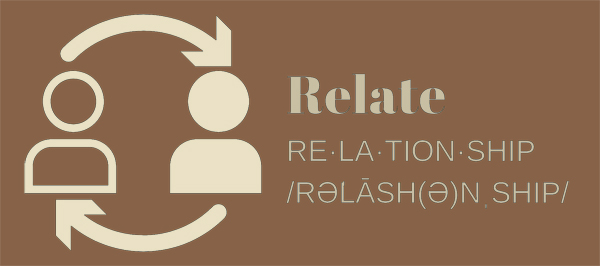Relate: The Danger of Unforgiveness – Week 3, Day 2
The Limits of Our Forgiveness
Peter asked Jesus how many times a person should forgive another person. Peter suggest 7 times, which most of us would consider generous. The generosity of God is always surprising. Interpreters have a hard time knowing if Jesus said 77 times or 7 x 70. Different English versions interpret it differently, but it’s obvious that Jesus had no limits on forgiveness.
Jesus goes on to tell Peter a parable about a servant who owed a King an unpayable amount of money. Mathematicians have run the numbers and have suggested that it would have taken several lifetimes for the servant to pay back the money.
Matthew 18:24 says,
24 As he [The King] began the settlement, a man who owed him ten thousand bags of gold was brought to him.
An Unpayable Debt and a Forgiving Master
It was an unpayable debt. The man begged the King for more time to pay the debt. It’s an impossible debt and the King knows it. The Kind is generous and loving.
Matthew 18:25–27 says,
25 Since he was not able to pay, the master ordered that he and his wife and his children and all that he had be sold to repay the debt.
26 “At this the servant fell on his knees before him. ‘Be patient with me,’ he begged, ‘and I will pay back everything.’ 27 The servant’s master took pity on him, canceled the debt and let him go.
The Master forgave the debt. Why? Because one forgiven servant is more valuable than money. One, made in the image of God saved servant is more important than 10,000 bags of gold.
A Payable Debt and an Unforgiving Servant
As we read on though we find that the forgiven servant isn’t as compassionate. When he confronts another servant, who owes him an easily payable debt, there is no forgiveness.
Matthew 18:28–30 says
28 “But when that servant went out, he found one of his fellow servants who owed him a hundred silver coins. He grabbed him and began to choke him. ‘Pay back what you owe me!’ he demanded.
29 “His fellow servant fell to his knees and begged him, ‘Be patient with me, and I will pay it back.’
30 “But he refused. Instead, he went off and had the man thrown into prison until he could pay the debt.
Here’s what we know. We know that when the king finds out that the servant who he forgave an unpayable debt, refused to forgive another servant of an easily payable debt, the King had the servant who had been forgiven thrown into a prison where torment would be his lot.
The Torment of Unforgiveness
Unforgiveness is the Torment We Suffer
Here’s the truth. Unforgiveness is the prison we put ourselves in, where we pay the price, for what other people have done.
Unless a person asks you for forgiveness, in most cases, you don’t need to tell them. Forgiveness is most often for you. Sometimes the person isn’t around. They may have moved, or they may have died. They may have committed such a great offense that to be close to them would put you in danger. The forgiveness that you are giving them frees you from hurt, anger, bitterness, and the other emotions one can carry after an offense.
Forgiveness is Healing
It really is true that forgiveness is something that we give others, but we get the benefit.
The Steps of Forgiveness
Here’s a review of the steps of forgiveness. Read them again and think about how forgiveness can be your way of life.
- Thank God for forgiving you. – Remember, the power to forgive begins in recognizing that your heavenly Father has forgiven you.
- Ask God, “Who do I need to forgive and for what?”. – Sometimes this is clear for people who need to begin forgiving forward, and other times it requires us to pray quietly and see what the Lord might clarify with you.
- Repent of your sin of unforgiveness. – Forgiveness is not something we can simply choose to do or disregard. It was commanded by our Lord and Savior and requires a humble, willing and obedient spirit.
- Forgive each offense from your heart.
- “Lord, I choose to forgive _________from my heart for _________.
- “Lord, is there anything else I need to forgive _______ for?
- “I declare ______________ is no longer in my debt.”
- Ask God to bless them and look for ways to bless them when possible. – This brings action and releases real freedom to move through you. It is also the evidence that you have truly forgiven as you have been forgiven.
- Commit to “not remember” the offense. When the memory comes…
- Say, “I specifically remember forgiving that.”
- Praise God for the freedom forgiveness has brought you.
- Bless the person you forgave again.
- Pray for reconciliation.[1]
- Make pre-forgiveness a lifestyle. – Jesus promised us that offenses would come. Choose today that you are going to be a person who is ready to forgive those who will offend you.
Prayer Prompt: Father, thank you for generously forgiving a debt that I would never have been able to pay on my own.
[1] Hebel, Bruce Wayne, and Toni Hebel. Forgiving Forward. Regenerating Life Press, 2011.



